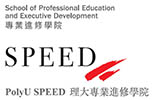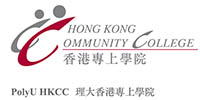雙語社評齊齊聽
[英語 (足本收聽)] Presented by Dr CHEUNG, Eric Lok-ming, Lecturer of School of Professional Education and Executive Development, The Hong Kong Polytechnic University
[普通話 (足本收聽)] Presented by Dr JIAO, Nina, Lecturer of School of Professional Education and Executive Development, The Hong Kong Polytechnic University
For five days in a row Hong Kong has registered single-digit numbers of coronavirus cases, and there are growing calls for the relaxation of social distancing restrictions. It remains unknown when the fight against the pandemic can come to an end. With such a protracted war, as it were, it is easy to feel weary. To tackle the second wave of the outbreak, Hong Kong society as a whole has been under great strain over the past few weeks, and "battle fatigue" has occurred. If the outbreak in Hong Kong continues to ebb away, some of the stringent measures of social distancing can be relaxed in an appropriate manner so as to allow the public to have a respite, be reinvigorated and prepare for the next wave of outbreak.
The outbreak in Hong Kong has stabilised. For a number of days there have been no local cases of unknown sources. Yesterday (April 16) there was even one newly confirmed case only. Hong Kong's second wave of outbreak was triggered by cases in Europe and the US. Since late March, the government has been enforcing a series of community measures one after another against the pandemic including regulations for restaurants, closures of venues and restrictions on gatherings. These measures set out stringent requirements for social distancing and are aimed at breaking chains of infections at community level. Thanks to such hard work for more than half a month, it can be said that the outbreak has been curbed. As a number of restrictions on social interactions will expire next Thursday (April 23), some members of the Executive Council and people in the business sector have said that as the situation has stabilised, they hope the government can lift such measures earlier so that economic activities can return to a more normal level. But the Centre for Health Protection argues that such social distancing decrees must continue.
The numbers of newly confirmed cases are lagging indicators that reflect earlier infections. It is impossible to judge whether the chains of infections in communities have all been broken by merely looking at several days' figures. During the Easter holiday last week, crowds of citizens left their homes for outlying islands to engage in outdoor activities in the countryside. It remains uncertain whether new clusters of infections have thus formed. Furthermore, the DSE examinations kick off next Friday and large numbers of candidates will assemble. Though examination halls are easier to control than many high-risk venues, there is still some degree of danger. At least two weeks' inspection is necessary to ascertain whether the outbreak in Hong Kong will rebound. In order not to let our previous effort go to waste, those restrictions cannot be lifted hastily. Citizens and industries affected have to endure the situation with stoicism for a longer period of time. At the same time, the government must consider carefully in what circumstances some anti-pandemic measures can be loosened appropriately.
Restrictions on restaurants and closure orders have affected many businesses. Immense interests are at stake. When the outbreak was at a critical juncture previously, society as a whole was aware of the necessity to impose restrictions so as to prevent clusters of infections from continuing to emerge in high-risk venues. Still the government had to cope with extremely strong resistance from the industries, so much so that the measures were delayed repeatedly. Now that the outbreak is easing, it is inevitable that complicated interests will come into play when decisions are being made concerning which measures can be relaxed earlier and which cannot be relaxed hastily. Every industry that has been affected wants to do business again as soon as possible. The government should base its decisions on whether a reasonable control of infection risks is possible rather than pressure from industries.
抗疫疲勞須正視 措施鬆綁要審慎
本港新增確診病例連續5天單位數,要求放寬社交距離限制的聲音愈來愈多。抗疫戰不知何時方休,長路漫漫易生厭戰情緒,社會上下因應第二波疫情,過去數周一直處於高度緊繃狀態,出現「抗疫疲勞」,倘若本地疫情持續緩和,部分嚴厲限制社交距離措施可以適度放鬆,讓民眾休養生息抖擻精神,為下一波疫情隨時來襲做好準備。
香港疫情回穩,連續多日沒有源頭不明本地個案,昨天更只有1宗新增確診病例。歐美疫情引發本港第二波爆發,3月底以來,政府先後推出一系列社區防疫措施,包括規管食肆、關閉處所以及限聚令等,嚴格限制社交距離,務求切斷病毒社區傳播鏈,經過大半個月努力,總算遏制了疫情。多項社交限制安排將於下周四(23日)屆滿,有行政會議成員和商界人士認為疫情已回穩,希望政府可以快些撤去社交距離限制措施,讓經濟活動回復到較正常狀態。衛生防護中心則認為,限制社交距離措施一定要繼續。
新增確診病例屬於滯後數字,反映較早前的感染情况,單憑數天數字,無法判斷病毒社區傳播鏈是否已經一一切斷。上周復活節假期,大批市民外出活動,離島郊外人群處處,會否出現新的群組感染,仍是未知數;下周五中學文憑試開考,大批考生聚集,雖然試場的環境已比很多感染高危處所較易控制,然而始終有一定風險,至少仍需觀察兩周,才能肯定本地疫情會否出現反覆。為免前功盡廢,放寬限制措施不能操之過急,公眾和受影響行業應該再忍一忍。與此同時,政府亦要仔細考慮,在什麼情况下可以適度放寬一些社區防疫措施。
食肆管制、停業令等防疫措施,影響不少商戶,牽涉龐大利益。早前本港疫情嚴峻,社會上下都意識到要緊急採取限制,阻止一些高風險處所持續出現群組感染,可是政府仍面對業界極大阻力,措施決定一拖再拖。現在疫情開始紓緩,哪些措施可以早些鬆綁、哪些不能操之過急,無可避免又會觸動複雜利益問題。受影響的行業,誰都想盡快開門做生意。當局應以合理管控疫情風險為本,處理鬆綁問題,不能因為業界壓力去做決定。
明報社評2020.04.17






